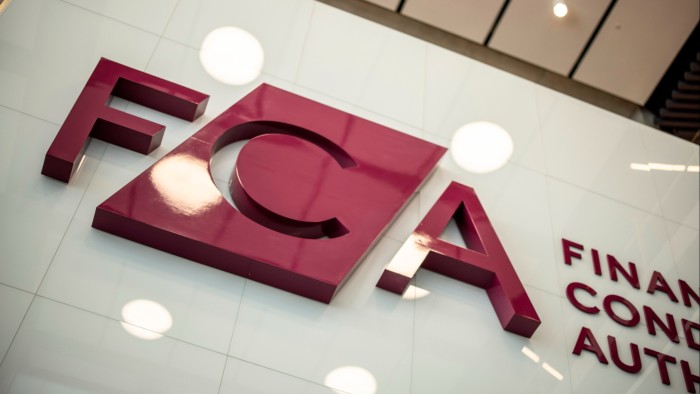Unlock the Editor’s Digest for free
Roula Khalaf, Editor of the FT, selects her favourite stories in this weekly newsletter.
The UK’s financial watchdog on Wednesday announced plans to extend the time that car financing groups have to deal with an expected surge in consumer complaints about alleged mis-selling after a landmark court judgment.
The Financial Conduct Authority said car finance providers were “likely to receive a high volume of complaints” after the Court of Appeal ruled last month that it was illegal for banks to pay a commission to a car dealer without getting the customer’s informed consent.
The banks involved in the case are expected to appeal against the judgment. The FCA said it would write to the Supreme Court “asking it to decide quickly whether it will give permission to appeal and, if it does, to consider it as soon as possible, given the potential impact of any judgment on the market and the consumers who rely on it”.
The FCA said it would look at intervening in any Supreme Court case to “share its expertise” and urged car finance companies to consider “whether they should make any financial provisions as complaints need to be handled in line with the law”.
The watchdog’s chief executive Nikhil Rathi and chair Ashley Alder are likely to be asked about the upheaval in car financing when they appear before the House of Lords financial regulation committee later on Wednesday.
Motor finance in the UK has been thrown into turmoil since the FCA in January launched a review of discretionary commissions, which gave an incentive to dealerships to put customers on a higher rate of financing. It banned the practice in 2021.
This prompted a surge in consumer complaints to banks and then, if rejected, to the Financial Ombudsman Service, many via complaints management companies that handle such cases in return for a cut of the proceeds.
Last month’s Court of Appeal ruling was much broader than discretionary commissions. It found that other forms of motor finance commissions, including fixed fees, were also unlawful unless they were properly disclosed to customers.
Analysts said the judgment could increase the ultimate cost of compensation for banks from their initial estimates of up to £16bn — prompting comparisons with the payment protection insurance scandal that ended up costing banks £50bn.
The FCA said it had spoken to 63 lenders and consumer representatives about the impact of the court ruling, which has raised concerns in government about disruption to the availability of credit for car purchases. Several lenders have temporarily pulled back from the market.
The proposal to give more time to companies to handle complaints would “help prevent disorderly, inconsistent and inefficient outcomes for consumers making complaints, motor finance firms and the market”, the FCA said.
It plans to publish details of the extension within two weeks but said it would “cover at least the period until the Supreme Court decides whether to grant permission to appeal”.
Motor finance has historically been a lucrative and stable business for carmakers, with between 80 and 90 per cent of new car purchases in the UK made on credit. Last year, £52bn of motor finance loans were issued by members of the Finance & Leasing Association.
Car financing companies feel aggrieved that the Court of Appeal judgment has exposed them to historic mis-selling claims from customers over commission payments to dealerships that were allowed under FCA rules at the time.
But the FCA said on Wednesday: “Firms authorised by the FCA must meet wider legal requirements as well as regulatory rules. The interpretation of common law is rightly for the courts.”
Read the full article here

